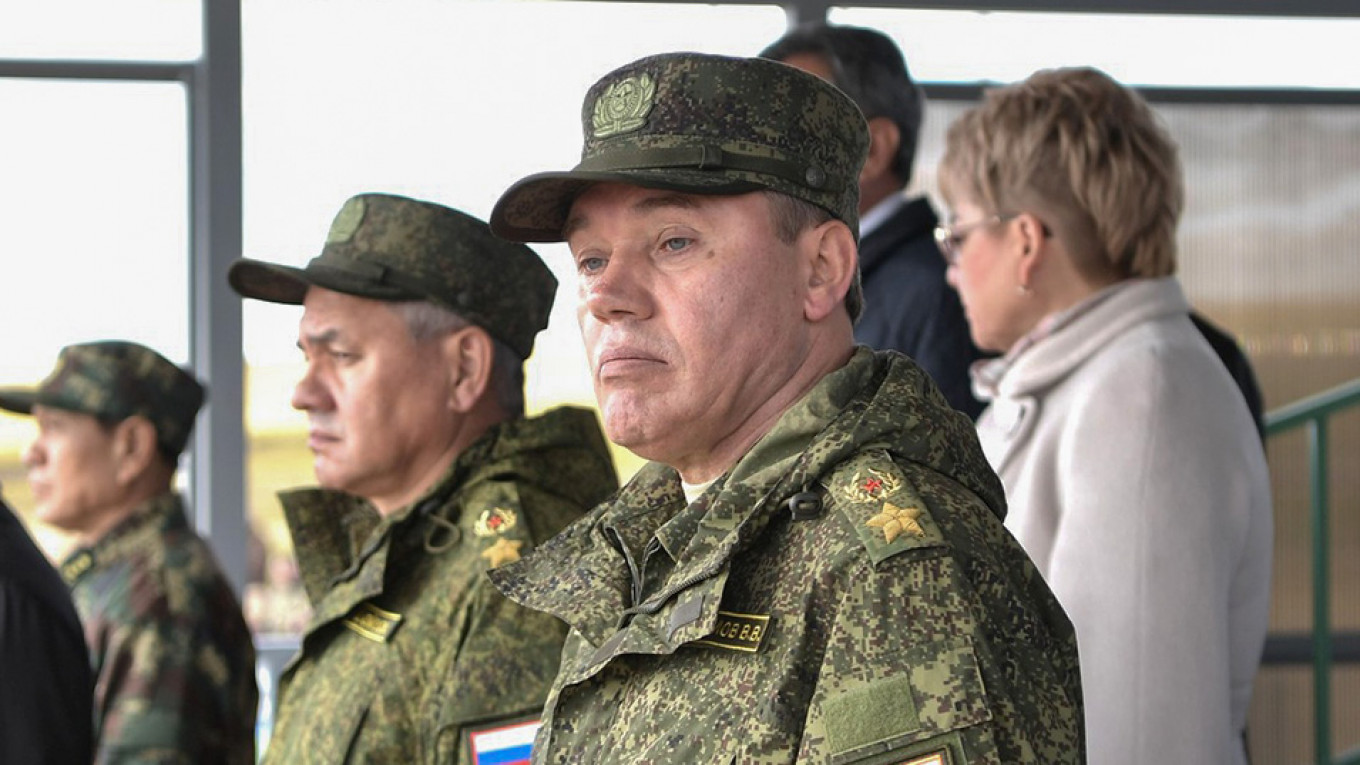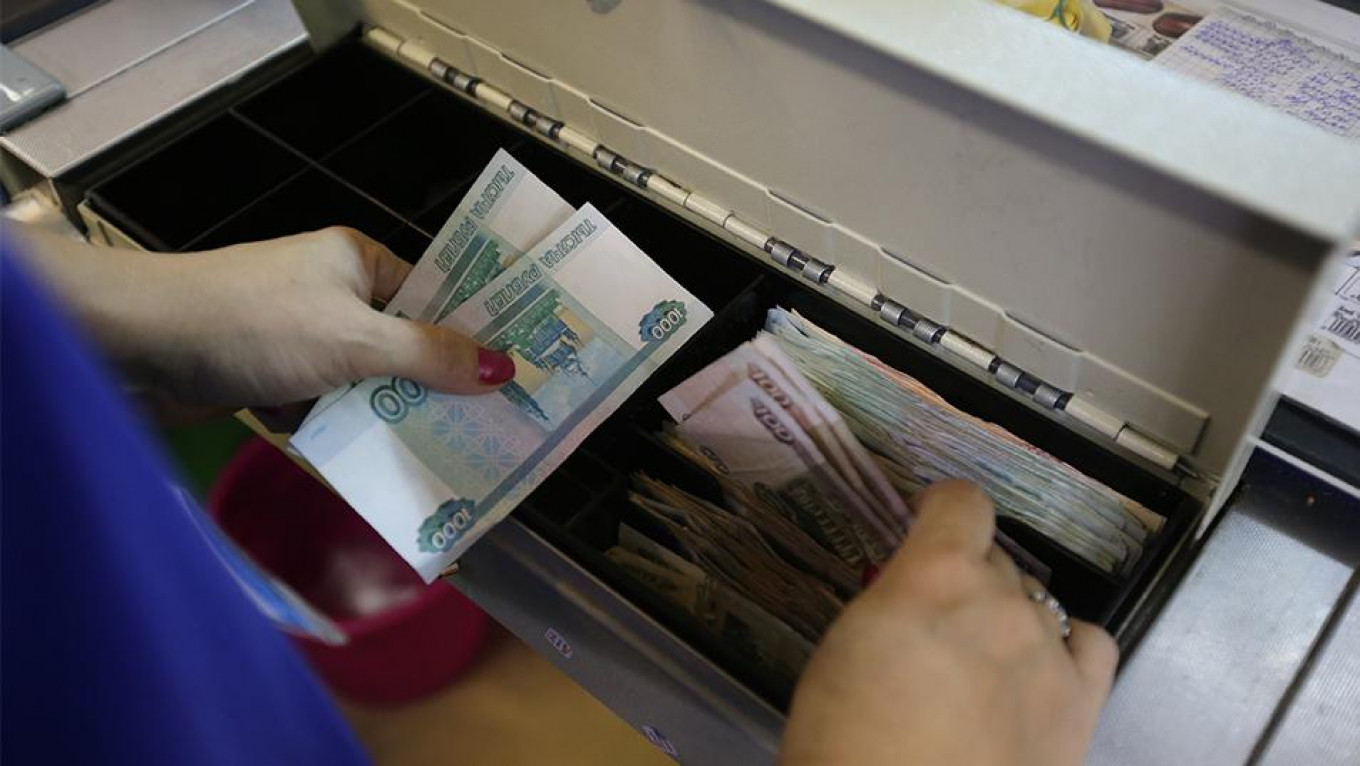 S
S
Russian Army General Gerasimov
Bogged Down in Ukraine, Russian Forces
Battle the Consequences of Systemic Corruption
Polina Beliakova / Politico
(March 8, 2022) — In the first days of the war in Ukraine, Russia’s performance was notoriously — and unexpectedly — underwhelming. Russian troops were slow and disorganized and failed to establish control of any major cities.
To explain this surprising development, experts pointed out that the Kremlin had wrong assumptions about Ukraine’s willingness and ability to fight. And while that may hold true, there is another factor that might have contributed to Russia’s incorrect pre-war assessments and poor performance on the ground — systemic corruption in the country’s defense and security sectors.
On the operational level, the corruption in defense procurement has also likely undermined logistics, manifesting in soldiers receiving inadequate equipment and supplies on the ground. Poor logistics slows down the advancement of troops, undermines their morale and hinders military effectiveness.
Early on in the invasion, there were accounts indicating that some Russian soldiers received rations that had expired in 2015. Most companies responsible for providing food to the Russian military are connected to Yevgeny Prigozhin — the patron of PMC Wagner, the mercenary organization, and sponsor of the Internet Research Agency, which has been accused of meddling in the United States elections.
Several years ago, Prigozhin’s companies were accused by Russian opposition leader Alexei Navalny of forming a cartel and gaming the state’s bidding system for defense orders, receiving contracts for several hundred million dollars. The quality of food and housing in the Russian military is reportedly worse than in its prisons, with unreasonably small meals and some carrying harmful Escherichia coli bacteria.
There are also reports that Russian advances in Ukraine were slowed by lack of fuel — and this in a country rich with oil and gas. But ineffective control over fuel consumption in the Russian military actually long preceded the war in Ukraine and had historically created opportunities for embezzlement — that is why fuel is often called the Russian military’s “second currency.” It is plausible that the long-standing tradition of corruption in fuel supply decreased the pace of Russian advancement in Ukraine.

It is also important to remember that the weapons currently targeting Ukraine were produced despitethis level of corruption. Meanwhile, many technological innovations, including those that could increase the precision of Russian strikes, have never materialized due to graft, embezzlement and fraud.
In 2020, Transparency International’s Government Defence Integrity Index had found Russia to have high corruption risk in its defense sector. The increased secrecy surrounding the industry limited the civilian oversight of companies engaged in corrupt deals with the Ministry of Defense without competition. Unsurprisingly, most of Russia’s defense companies expressed either low or very low commitment to anti-corruption action and transparency.
For example, in 2012, a Russian arms company received about $26 million to develop an aircraft system for the interception of nonstrategic missiles, according to local press reports. But the research never took off, as the firm signed fraudulent contracts with shell companies, some of which were registered to the addresses of public toilets in Russia’s Samara region.
In a separate case from 2016, another company which was responsible for the supply of radio navigation equipment and control systems for high-precision ammunition, was embroiled in an embezzlement scandal in which its leadership imitated research and development activities to steal money through fraudulent contracts.
Corruption in Russian defense is not limited to the military-industrial complex. It penetrates the political level as well, likely altering the incentive structure for Russian President Vladimir Putin’s top security officials. Recent investigations show that top officials in the Russian Defense Ministry own property that significantly outmatches their income, pointing to possible involvement in corrupt deals.

Maintaining a luxurious lifestyle disincentivizes top security officials from giving expert advice that might disappoint the autocrat and cost them access to corruption networks.
In the case of Ukraine, this would have meant the risk of reporting to Putin that the country he wanted to invade would put up a fight, that civilians were not looking forward to joining the “Russian world” and would likely greet troops with Molotov cocktails rather than bread and salt, as per local tradition. In this way, the corrupt loyalty of Putin’s top officials might have backfired and contributed to intelligence failures and erroneous risk assessments in Ukraine.
Of course, corruption in the Russian security sector does not predetermine the outcome of the war. Russia still has extensive capabilities and numerous troops to be thrown into combat. But whatever gains the military might make, they will have done so while battling the challenges caused by rampant corruption, from erroneous risk assessment at the top to expired military rations on the ground.
Polina Beliakova is a senior research fellow at the Center for Strategic Studies at the Fletcher School, Tufts University.
Related Content
- Telegram: The digital battlefront between Russia and Ukraine
- A lot is riding on a platform the West doesn’t fully understand — as well as the man behind it.
- A ‘6-point plan’ to save Europe’s gas market
- We must address the disruption of supplies caused by the crisis in Ukraine.
- Russia said the Snake Island soldiers were alive
- The coverage of the incident was biased in favor of Ukraine.
- Let Ukrainians — not Ukraine — join the EU
- Letting the country join will take time, allowing its people to live and work here will not.
- Posted in accordance with Title 17, Section 107, US Code, for noncommercial, educational purposes.